Pierre de Bayard - a knight without fear or reproach, who fought alone with an entire army
In combination with the word “knight” we often hear the expression “without fear or reproach.” But was it really like that? Medieval knights are known for their cruelty, greed and unscrupulousness. Many of them did not disdain banal robbery and easily betrayed the “master” if they saw benefit in this or sensed danger. However, there were pleasant exceptions. The French knight Pierre Terrail de Bayard was an impeccably noble, honest and incredibly brave man.
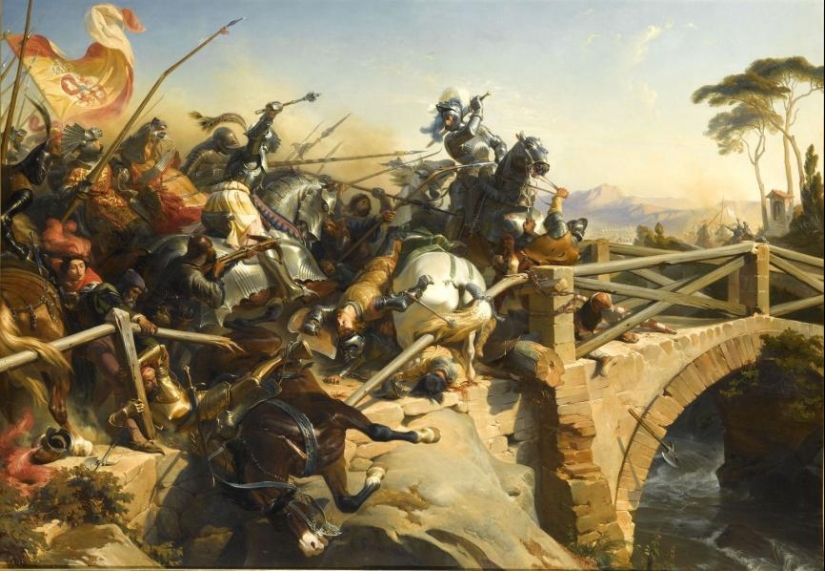
Pierre de Bayard was called a knight without fear or reproach during his lifetime. Moreover, not only friends, but also enemies spoke about him this way. His motto was “Do what you have to do, come what may” and he strictly adhered to this rule. After himself, the noble de Bayard left many stories with examples of devotion, generosity and incomparable courage. He always kept his word and was loyal to his overlord, even when it threatened his life.
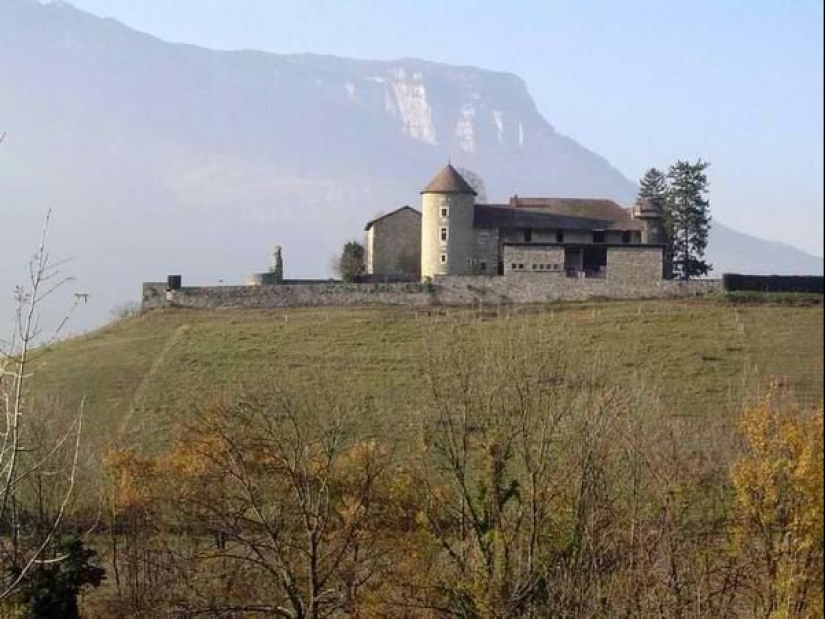
The noble knight was born in 1476 in a family castle near the town of Pontcharres, in southwestern France. His family was very ancient, and many de Bayards became famous for remarkable exploits. He was the fourth and youngest son in the family. His older brothers did not express a desire to devote themselves to the art of war, which greatly upset his father. But young Pierre dreamed of military campaigns and battles.
Thanks to his father, by the age of 14 Pierre had mastered many types of weapons and felt in armor as if in his own skin. The mother also paid a lot of attention to her son. It was she who sowed in him the seeds of nobility, honesty and generosity. She told Pierre: “Respect your peers, always tell the truth, protect widows and orphans.”
At the age of 14, Pierre de Bayard entered the service as a page to the Duke of Savoy. He was later invited to serve King Charles VIII himself. The monarch sincerely fell in love with the ambitious and straightforward young man and became his mentor in many matters. De Bayard also became the king's constant companion on all military campaigns. At that time, France had been at war with Spain for 60 years, and there were more than enough occasions to demonstrate military valor.
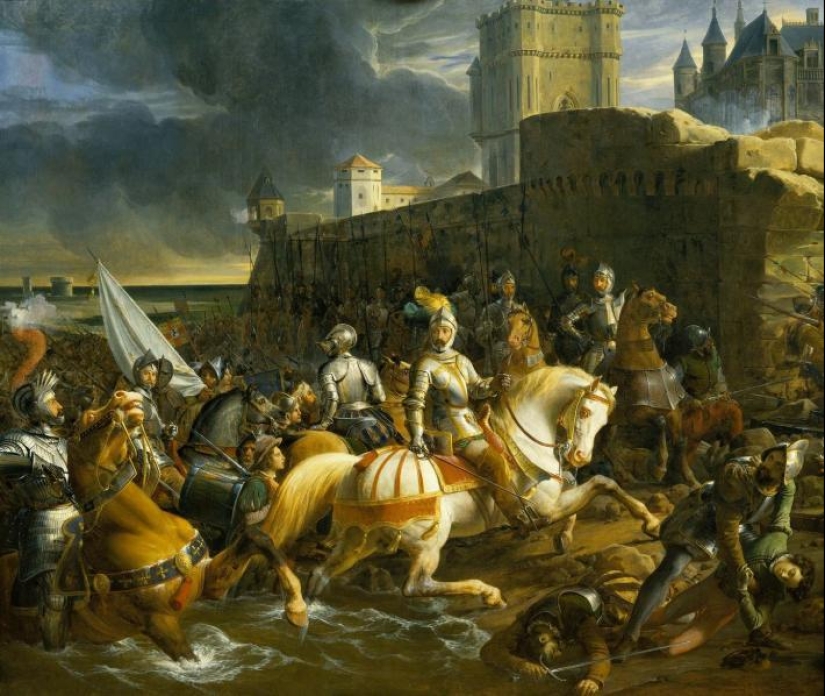
Even at the beginning of his service, the young knight showed himself at his best. During one of the military forays, he and a friend managed to recapture a chest with 15 thousand gold coins from the Spaniards. According to the laws of that time, this was his legal prey. De Bayard honestly divided the money in half with his partner, and distributed his part... to soldiers and beggars.
But most of all the knight was famous for his valor. One day, during a two-month truce, French and Spanish knights decided to compete in a tournament. It was agreed that the fight would take place near the Monerville castle and there would be 13 participants on each side. The rules adopted by opponents prohibited the use of weapons against horses. If an animal is accidentally injured, its owner must leave the field. The tournament was planned to continue all day until dark.
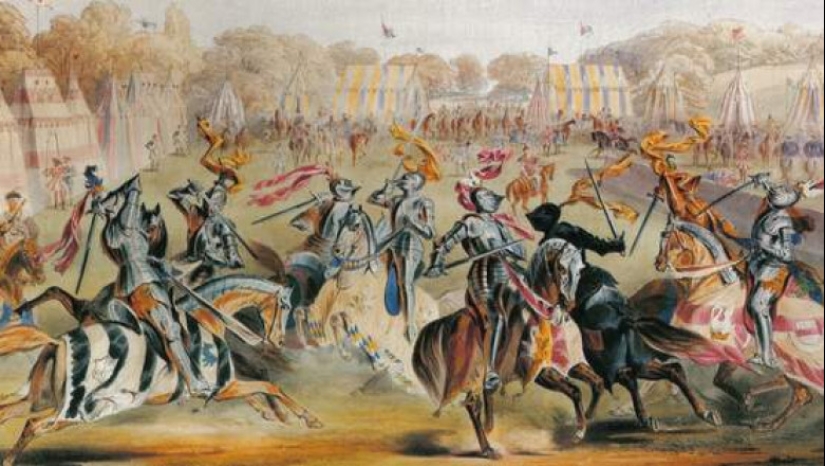
The Spaniards immediately violated the main rule and wounded 11 horses of the French knights. Because of this, only de Bayard and his friend Oroz remained on the field against thirteen Spaniards. They did not allow their horses to be injured, and they themselves removed seven Spaniards from the battle. When darkness fell, the two Frenchmen were confronted by 6 opponents. The battle ended in a draw, although the advantage of the French knights was obvious. But Pierre de Bayard's most famous feat was ahead.
In 1503, the French and Spanish armies met at the Garigliano River. De Bayard's comrades were on the right bank, and the enemy was on the left. The two troops stood in place for quite a long time, not daring to attack first. In the French camp, there began to be a shortage of food and the command sent most of the cavalry to replenish supplies.
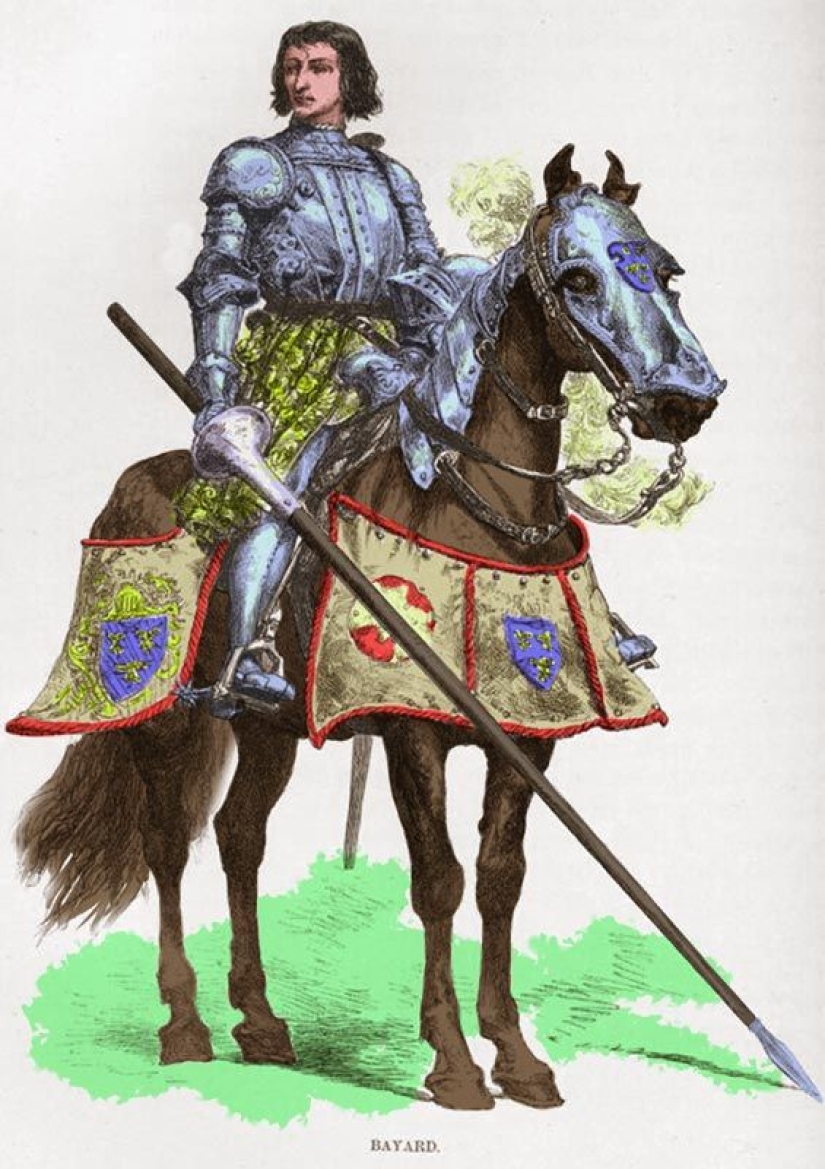
The Spaniards learned that there were fewer French people. They decided not to waste the chance and unexpectedly attacked. Their commander, Gonzalo de Cordoba, came up with a plan to encircle the enemy that seemed flawless. But to implement it, it was necessary to transport a detachment of knights across a narrow bridge, on which two horsemen could barely pass each other.
The Spaniards' plan almost succeeded, but at the last moment Pierre de Bayard appeared at the bridge with his squire Le Basco. There were several dozen Spaniards, so the knight sent Le Basco for help. He himself drove out onto the bridge and prepared to take on an unequal battle. There were many Spaniards, but they could only attack in twos or threes. At the same time, the attackers greatly interfered with each other.
As soon as the first enemies drove onto the bridge, de Bayard spurred his horse and attacked them. He killed the first two Spaniards with a spear and threw them into the water. After this, the knight turned his horse across the bridge and began to defeat the enemies one by one. Soon his spear broke and his sword was used. The lone defender of the crossing covered himself and his horse's head with a shield, while delivering strong and accurate blows.
Some Spaniards died and fell from the bridge, others, having received injuries, returned to the shore. Only the brave Pierre had no one to replace him. It was obvious that sooner or later his strength would run out and he would lose. This is exactly what the Spaniards were waiting for. They even resorted to cunning and retreated, hoping to lure the knight to their shore. But de Bayard did not succumb to provocation and remained on the bridge.
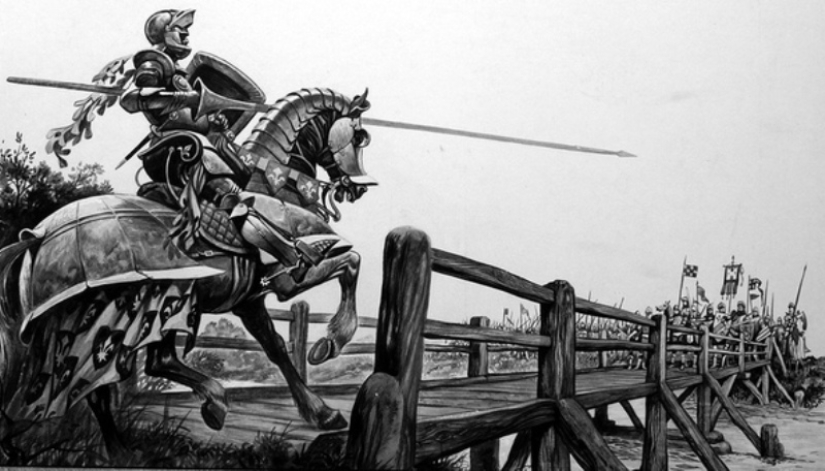
The brave warrior was wounded, but continued to hold the crossing until help arrived. True, de Bayard’s friends could not attack the enemy, since he completely blocked the passage with his horse. Then Pierre spurred his horse and drove the enemy off the bridge. Following him, fresh French forces poured ashore. The battle was won!
The authority of Pierre de Bayard was so high that the new king Francis I, during the Battle of Marignano, asked the hero to accept him as a knight. Modest Pierre refused for a long time, but then agreed. Making three ritual blows with a sword flat on the king’s shoulders, de Bayard said: “God grant, Your Majesty, that you do not know flight!”
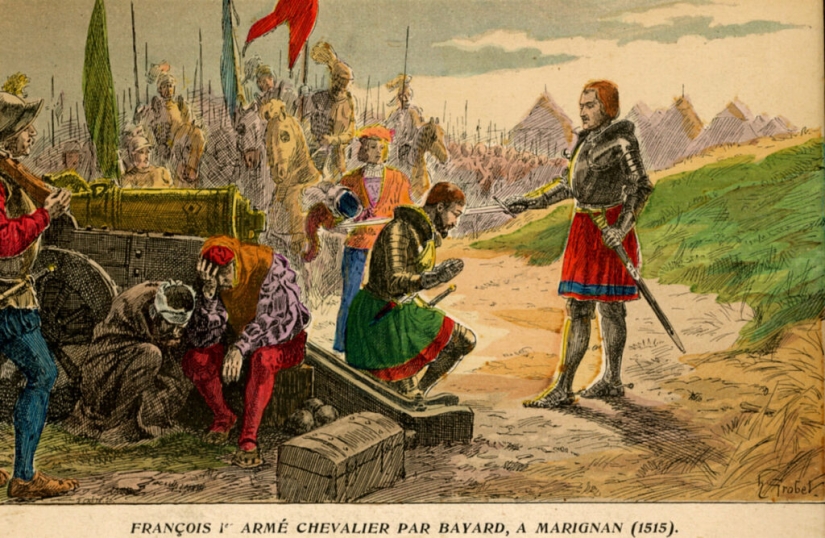
The knight died without fear or reproach in 1524 in Italy. In this campaign, the French were led by an incompetent military leader - Admiral Bonivet. Because of his mistakes, the army was defeated and was forced to retreat to the Alps. The commander-in-chief himself was mortally wounded and transferred control of the army to de Bayard.
Soon another battle took place, during which the knight, as befits a commander, was in front. A Spanish soldier shot him in the back with an arquebus. A heavy bullet, more like a small cannonball, pierced the steel armor and broke the knight's spine. According to legend, the dying knight ordered himself to be seated near a tree, facing the enemy - “I always looked them in the face and, dying, I do not want to show my back!”
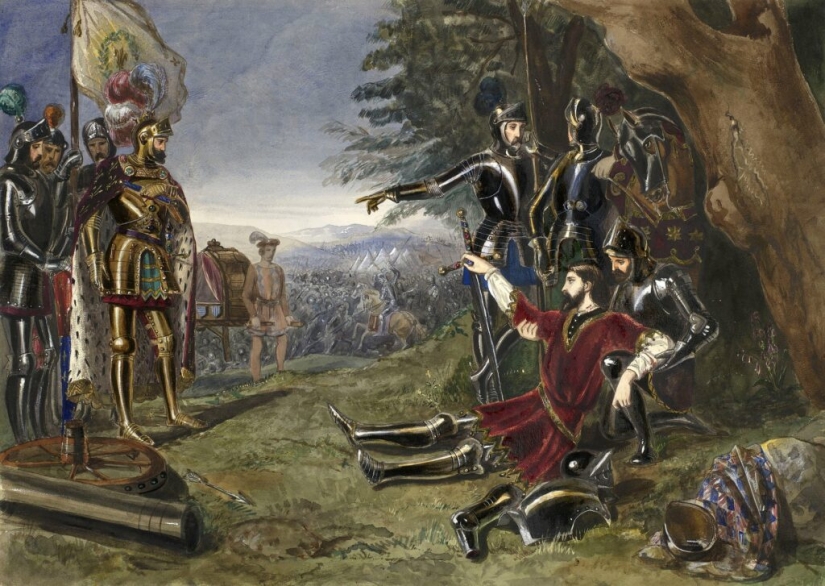
The Spaniards found the knight sitting near the tree. Their commander, the Marquis of Pescara, said:
The Spaniards took great precautions to take the wounded man to their camp, but even the best doctors could not help him. Thus died one of the few knights, whose honor and courage even his enemies had no doubt about.
Recent articles

American artist Lee Price is sure that eating is a completely natural process, but many are ashamed of their attitude to food, ...

There is an unusual exhibit at the National Museum of Natural History in Washington. This is the skeleton of a man, on whose chest ...

A series of works by photographer Brian VILS from new York, dedicated to girls, sheltered the homeless and abandoned cats. 'brien ...